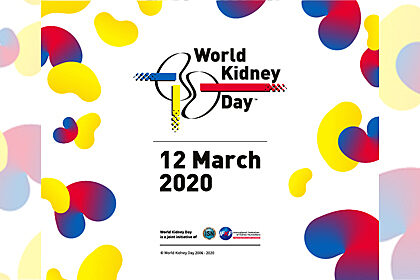5 Ways to Reduce Your Risk of Kidney Disease


Today is World Kidney Day, a global campaign aimed at raising awareness about the importance of our kidney health. Kidney disease is a noncommunicable disease that damages your kidney function and affects more than 1 in 7 adults. This year’s theme is focused on how to prevent the onset and progression of the disease, so we’ve listed five ways to reduce your risks and protect your kidneys.
1. Get a screening from your doctor Nine in 10 adults don’t know they have kidney disease. You can lose more than half your kidney function without realizing until it’s too late. Next time you’re getting an annual checkup, talk to your provider about getting screened. They’ll use a blood test and a urine test to identify if your kidneys are working as they should.
2. Manage your blood sugar Diabetes is one of the most common causes of chronic kidney disease because it’s a condition where your blood sugar levels are too high. When your blood has too much sugar, the kidney filters that remove waste and fluid become damaged and are unable to perform their necessary functions. Improving your diet and exercise habits are key ways to maintain a healthy blood sugar.
3. Monitor your blood pressure High blood pressure is the second-leading cause of kidney disease. This condition can damage blood vessels in the kidneys, which weakens their ability to work properly. Similar to kidney disease, people with blood pressure are often unaware because there are often no symptoms. In addition to getting checked at your annual physical, you can monitor your blood pressure for free at many pharmacies or by using an at-home, digital blood pressure monitor.
4. Eat a kidney-friendly diet A healthy diet is beneficial for preventing diabetes and reducing the risk of high blood pressure, which lowers your chance of kidney disease. The National Kidney Foundation recommends cutting sodium, reducing red meat intake and limiting processed foods for a kidney-friendly diet.
5. Get active Staying physically active also helps prevent the issues related to increasing the risk of kidney disease. Walking, biking, swimming and other aerobic exercises are all recommended to improve your overall health. Regular exercise helps maintain a healthy weight, control blood pressure and lower blood sugar, which helps make sure your kidneys are functioning properly.
About the author
